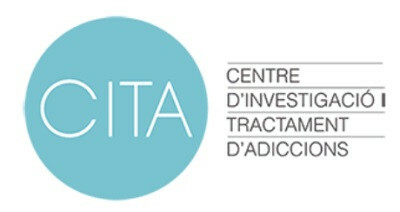Benefits of horse therapy to treat addictions
Horse therapy, also known as Equine Assisted Psychotherapy (EAP) It is a resource that many health centers use in the treatment of patients.
In the case of Clínicas CITA, this form of intervention has proven valuable in providing support to people whose main problem we specialize in: addictions.
In this article we will see what horse therapy consists of and what are the benefits it brings to patients in the process of overcoming an addiction.
- Related article: "How is the alcohol detoxification process?"
What is Equine Assisted Psychotherapy?
In Equine-Assisted Psychotherapy, a series of activities are carried out, either in groups or individually and focused on in a single patient, in which people in the treatment or rehabilitation stage interact with horses, emphasizing he development of concentration skills and the establishment of emotional bonds, as well as those that have to do with muscle coordination.
Especially in the case of people with motor difficulties or very significant physical exhaustion, these activities also include physical exercise, which It is usually of the isometric type (keeping our backs upright on the horse, extending our arms horizontally, etc.) and maintaining balance.
Its positive effects on people with addictions
addiction is a disorder whose harmful effects soon reach all areas of the life of the person who suffers from it.
That is why, although the root of the problem is in carrying out those actions that lead to falling into addiction again and again (smoking, injecting heroin, play in betting houses...), around it there is a whole series of psychological and relational aspects that are interrelated with that first element, and that reinforce.
After all, every time satiating the desire to consume or relapse becomes the number one priority of the addict, everything you do from that moment on to achieve it becomes a series of habits that are wearing down their freedom and autonomy, causing their life to become a vicious circle of "monkey" and satisfaction of the need.
Horse therapy helps, among other things, to get rid of intrusive thoughts related to consumption and get used to a new way of living. interact with what is beyond the cycle of addiction, without considering it an instrument to continue falling again and again into the behavior that is the basis of addiction. dependence.
This paradigm shift when it comes to living life comes through the adoption of Habits that provide positive emotions and significant experiences for the person beyond the world of drugs, gambling, etc. Let's see how it works.
Benefits of therapy with horses in cases of addictions. This is a summary of the aspects of Equine Assisted Psychotherapy that are beneficial for patients who want to overcome addictions.
1. Improve physical condition
Physical and emotional health are interconnected fields; when the body is weak, we have much less resources to resist the urge to relapse, since we have very little room for maneuver to manage the discomfort.
- You may be interested in: "What to do to overcome dual pathology?"
2. Allows relearning the establishment of affective bonds
Horses are highly social animals, and they adapt to the emotional reactions they arouse in humans. It has been observed that, in many psychological and psychiatric disorders, these interactions help patients to emotionally “reconnect” with beings that are beyond their own subjectivity, breaking the vicious circle of introspection and social isolation. Starting with the easiest, little by little you gain access to social life in contact with people.
3. Provide Mindfulness experiences
The therapy sessions with horses are, after the first stage in which you have to learn the basics, very pleasant and relaxing. This helps to make a "clean slate" in relation to the disturbing thoughts that often persecute people with addictions, an experience similar to what is achieved through Mindfulness classic.
4. It is an activity in which to be actively involved.
Something as simple as adopting an active role in an activity, which by necessity must be simple and not pose very complicated goals that are difficult to achieve, is a first step in the direction of getting used to exploring the environment in search of experiences capable of bringing satisfaction outside the scope of addictive behaviors.
Are you looking for treatment for addiction problems?

If you are looking for professional support for addictive disorders (with or without substances), contact us. In APPOINTMENT CLINICS We have a health team that includes medical personnel and psychologists with extensive experience in interventions of this type, and we offer the possibility of carrying out the treatment in our residential module located in the middle of nature in Dosrius (Mataró), a place where among the many activities available is therapy with horses at the hands of experts.. To see our contact information, go to this page.
Bibliographic references:
- Benda, W., Fredrickson, M., Flanagan, S., Zembreski-Ruple, J., & McGibbon, N. h. (2000). Animal-assisted therapy: A highly versatile modality. Complementary Medicine for the Physician, 5(6), pp. 41 - 48.
- Voelpel, P.; Escallier, L.; Fullerton, J.; Abitbol, L. (2018). Interaction Between Veterans and Horses: Perceptions of Benefits. Journal of Psychosocial Nursing and Mental Health Services. 56(5): 7 - 10.
- Signal, T.; Wilson, R.; Nelson, a. (2016). Equine Assisted Therapy and Learning. Society & Animals. 24(4): p. 337 - 357.



